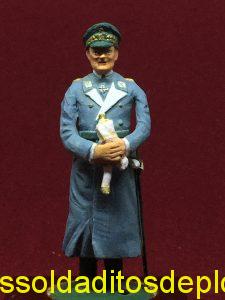Goering
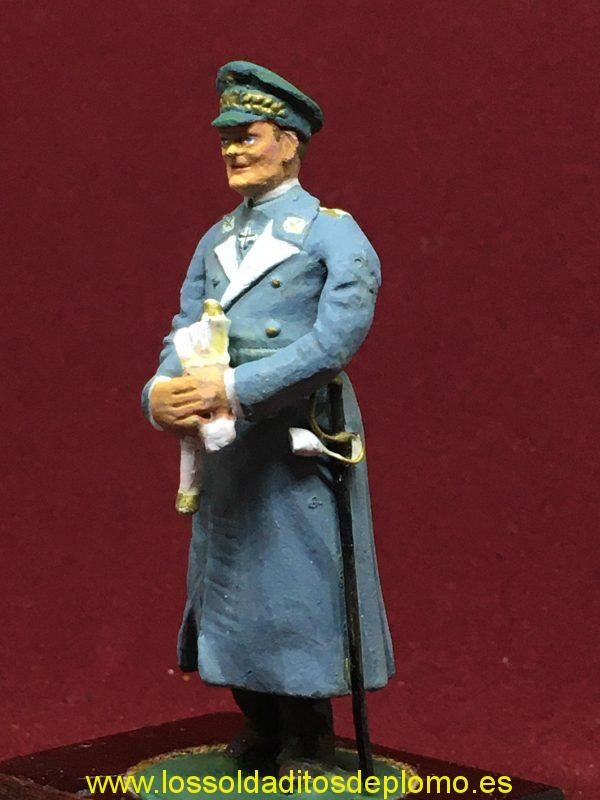
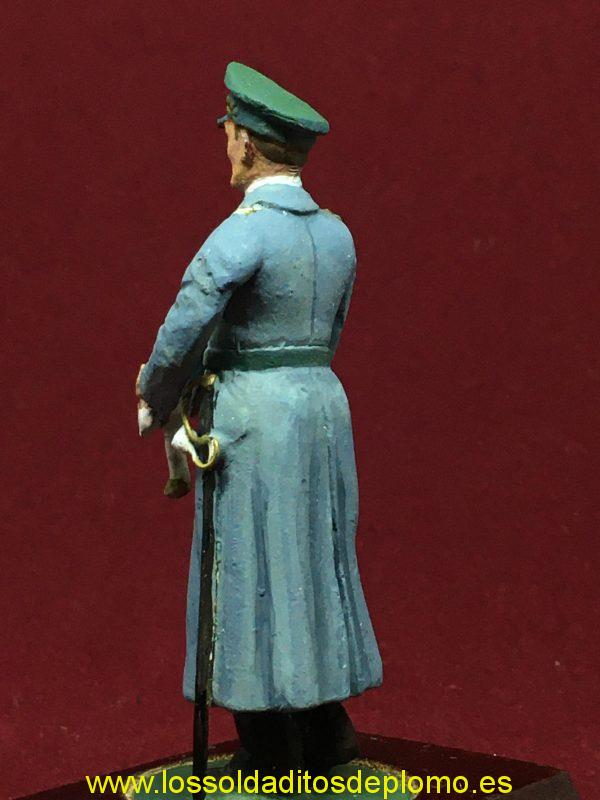
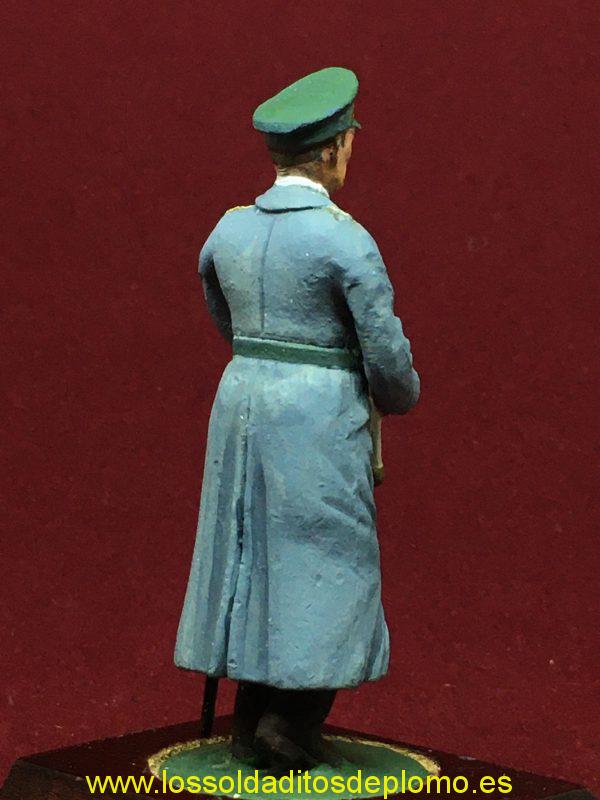
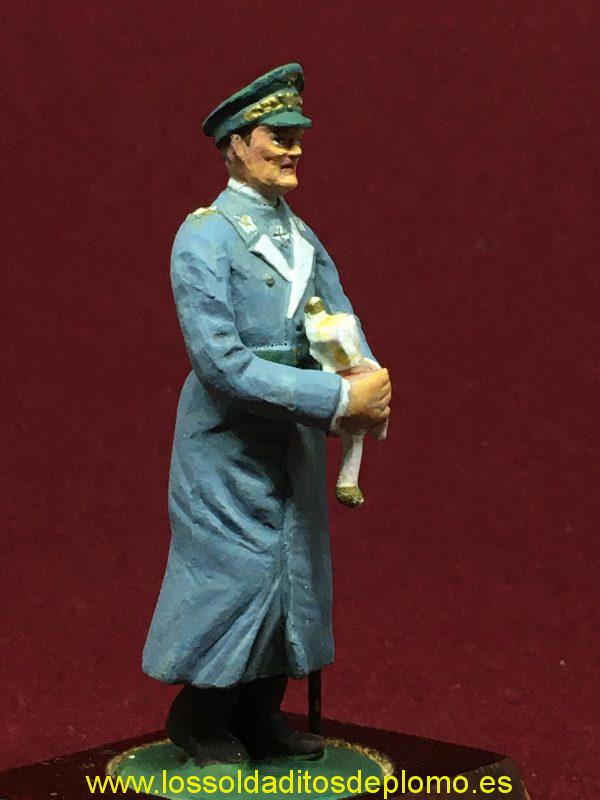
Hermann Wilhelm Göring (Rosenheim, 12 de enero de 1893 – Núremberg, 15 de octubre de 1946) fue un político y líder militar alemán, además de miembro prominente del Partido Nazi (NSDAP). As de la aviación durante la Primera Guerra Mundial, fue galardonado con la codiciada medalla Pour le Mérite. Asimismo, fue el último comandante de la Jagdgeschwader , la unidad de cazas de combate que había liderado Manfred von Richthofen.
Göring fue miembro del Partido Nazi desde sus primeros tiempos y resultó herido en 1923 durante el fallido golpe de estado conocido como Putsch de Múnich. Se convirtió en adicto a la morfina después de ser tratado con esta droga para superar sus heridas. Tras ayudar a Adolf Hitler a hacerse con el poder en 1933, pasó a ser el segundo hombre más poderoso de Alemania. Fundó la Gestapo ese mismo año y después puso al frente a Heinrich Himmler. En 1935 Hitler designó a Göring comandante en jefe de la Luftwaffe, la fuerza aérea, cargo que ostentó hasta el final de la Segunda Guerra Mundial. Antes de la campaña de bombardeos sistemáticos sobre Alemania por parte de los Aliados, disfrutó de gran popularidad entre el pueblo alemán. En 1940 se encontraba en el cenit de su poder e influencia y como ministro al frente del Vierjahresplan (Plan de cuatro años), fue responsable de las medidas económicas que debían preparar a Alemania para la guerra. Hitler le concedió el rango de Reichsmarschall, un cargo superior al del resto de comandantes de la Wehrmacht y en 1941 lo designó sucesor y representante suyo en todas las instituciones.
Sin embargo, la confianza de Hitler en Göring se había quebrado a inicios de 1943, para cuando la Luftwaffe había fracasado en impedir los bombardeos de los Aliados sobre ciudades de Alemania y sido incapaz de abastecer a las tropas alemanas cercadas en la batalla de Stalingrado. Por ello, se retiró en gran medida de la escena política y militar y se centró en la adquisición de propiedades y obras de arte1, muchas de ellas arrebatadas a las víctimas judías del Holocausto. El 22 de abril de 1945, Göring fue informado de la intención de Hitler de suicidarse y decidió enviarle un telegrama en el que le pedía permiso para asumir el control del Reich. Considerándolo un acto de traición, el Führer le retiró todos sus cargos, lo expulsó del partido y ordenó su arresto.
Acabada la guerra, Göring fue procesado en los Juicios de Núremberg y condenado por crímenes de guerra y crímenes contra la humanidad. Fue sentenciado a morir en la horca, pero se suicidó la noche anterior a su ejecución con la ingesta de una cápsula de cianuro.
Hermann Wilhelm Göring (Rosenheim, January 12, 1893 – Nuremberg, October 15, 1946) was a German politician and military leader, as well as a prominent member of the Nazi Party (NSDAP). Ace of aviation during the First World War, he was awarded the coveted Pour le Mérite medal. He was also the last commander of the Jagdgeschwader, the combat fighter unit that Manfred von Richthofen had led.
Göring was a member of the Nazi Party since its earliest days and was injured in 1923 during the failed coup d’etat known as Munich’s Putsch. He became addicted to morphine after being treated with this drug to overcome his wounds. After helping Adolf Hitler seize power in 1933, he became the second most powerful man in Germany. He founded the Gestapo that same year and then led Heinrich Himmler. In 1935 Hitler appointed Göring commander in chief of the Luftwaffe, the air force, a position he held until the end of World War II. Before the campaign of systematic bombings on Germany by the Allies, he enjoyed great popularity among the German people. In 1940 he was at the zenith of his power and influence and as minister in charge of the Vierjahresplan (Four-year plan), he was responsible for the economic measures that were to prepare Germany for war. Hitler granted him the rank of Reichsmarschall, a position superior to that of the other commanders of the Wehrmacht and in 1941 he was appointed successor and his representative in all institutions.
However, Hitler’s confidence in Göring had been broken at the beginning of 1943, by the time the Luftwaffe had failed to prevent the Allied bombing of cities in Germany and was unable to supply the German troops encircled in the battle of Stalingrad. Therefore, he largely withdrew from the political and military scene and focused on the acquisition of property and works of art1, many of them taken from the Jewish victims of the Holocaust. On April 22, 1945, Göring was informed of Hitler’s intention to commit suicide and decided to send him a telegram requesting permission to take control of the Reich. Considering it an act of treason, the Führer withdrew all his charges, expelled him from the party and ordered his arrest.
After the war, Göring was prosecuted in the Nuremberg Trials and convicted of war crimes and crimes against humanity. He was sentenced to death by hanging, but committed suicide the night before his execution with the intake of a cyanide capsule.

